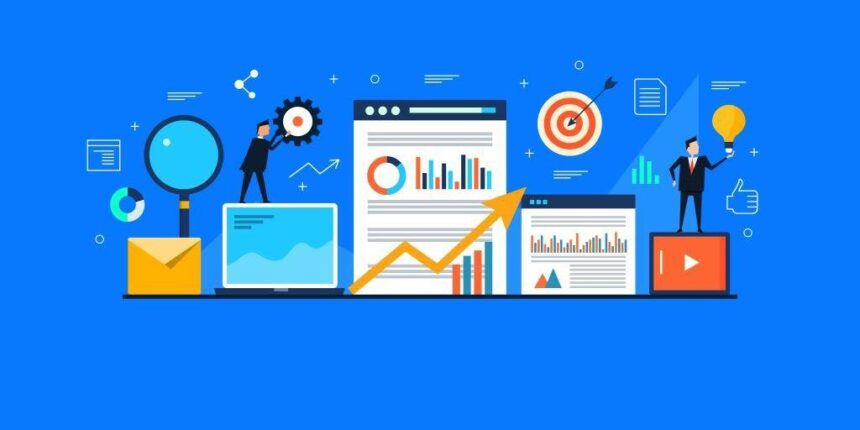META: We’re breaking down the ways social media has changed businesses and how you can use these changes to get ahead.
Digital technology is unquestionably changing the future of business. Two of the biggest advances in technology that are influencing the direction of business are social media and data analytics. These may seem like unrelated technologies to the average person, but they are actually closely intertwined.
Smart businesses will need to know how to leverage data analytics to make the most of their social media strategies. They will get more bang for their buck if they take a data-driven approach to social networking.
Data Analytics and Social Media Are Collectively Shaping the Future of Business
There isn’t a lot that the internet cannot influence in some way or another. The idea of going “off grid” is almost laughable when you think about it. A big part of being on the internet has to do with social media. Once upon a time, we only spoke to long-distance family members or friends we’d just seen in class on social media. Those days are long over. Today, we are treating our Instagram accounts like resumes and making business connections on Facebook and selling everything on Instagram.
Big data is another area that is changing the nature of business. One study from 2020 discovered that 59% of global companies use data analytics to some degree.
Data analytics and social media can go nicely hand-in-hand. In fact, there is an entire field known as social media analytics, which is described in this post on IBM. How do these two technologies overlap? According to IBM, here are some benefits of using the two together:
- Companies can use social media analytics to identify industry trends to update their own offerings and respond to customer expectations.
- Businesses using social media analytics are able to better understand the messages of their customers and better assess how their own messages are interpreted.
- Social media analytics makes it easier to identify the best value of features of various products.
- Social media analytics is arguably the best competitiveness analytics tool available.
- Companies can use social media analytics to better understand the impact third-party companies and partners may have on performance.
In this post, we will break down the ways social media has changed businesses and how you can use these changes to get ahead.
Social Media Analytics Helps Make the Most of Virtual Events
Networking used to be a simple concept. You would go where people congregated and start introducing yourself. The core concept hasn’t changed that much, but as businesses are integrating all around the world, the increasing move onto the internet, and travel bans being implemented, it makes sense that there is a growing demand for virtual industry events.
These virtual events are not as pointless as you might think. You can listen to (or give) a talk, chat in groups, or ask for an aside with someone in particular. The events themselves are full of activities for you to take part in, like interactive games and “speed networking”, which is exactly how it sounds.
Social media analytics makes it easier to get the most of your networking opportunities. You can use extract social data to see how many people usually participate in various events. You can also data mine testimonials about various meetings, so you can derive better insights about the benefits people have gotten from them. You can use MeetUp Pro’s analytics tools if you host your own business Meetup events. Other analytics tools like Hootsuite, BrandWatch and Buffer are also great.
If you like the idea of hosting a virtual networking opportunity and you’re in the UK, contact RX for a consultation to find out how you can better promote your business.
Remember when the rule on social media was, don’t put anything too edgy on there in case an employer sees it? Well, some crazy kids are taking that a step further and are creating and honing their social media accounts around the idea of impressing an employer.
When you think about it, it’s not such a crazy idea. It’s an open secret that employers are checking social media accounts to be sure they’re hiring a fine, upstanding citizen, and if you have a hobby, you’re considering trying to make some money from, like art or music, the first move you make is to create a dedicated social media account.
Get the Most from Your Social Media Profiles
So, it only makes sense that people are displaying the fruits of their individual labors on social media for employers to browse. Everything from academic milestones to personal projects are being displayed, with the added bonus of demonstrating your skills in the process.
Plus, hosting an impressive social media account takes a lot of transferable skills, like photo and video editing, organizational skills, marketing skills, and if you’re making money from it, business and entrepreneurial skills.
However, you might want to know whether or not your profile is actually helping. The good news is that analytics tools like Google Analytics can help make this determination. You will be able to integrate Google Analytics with most social media profiles, including Facebook profiles and LinkedIn ads. You can also use SalesForce with most social media profiles, which gives you access to their analytics dashboards.
Social Media Analytics Helps Us Identify Changing Behaviors
Social media is a very different place from what it once was and users’ habits have drastically changed over the past couple of years. For one thing, users are researching any brands they buy from today, to make sure their priorities align with their own. There are a lot of social issues you can tap into to get on their good side with this, like supporting small businesses, sustainable products, or charities.
Plus, users are becoming more aware of adverts and demand quality content, causing marketers to shift focus from outlining the benefits of their product, to incorporating their product into otherwise entertaining marketing.
Social media analytics helps make it easier to track these changes. As a company, you can use specialized social media analytics tools and standard analytics tools like Google Analytics to make the most of your strategy.










